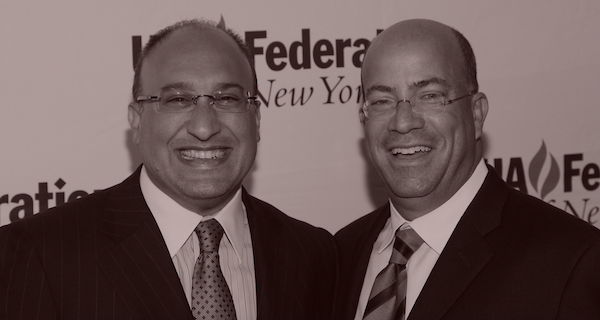|
Good evening, I'm Dylan Byers.
Welcome back to In The Room, my private email on the inner workings of the American media. In the past few weeks, I've reported on Bob Chapek’s vision for Hulu, Joe Scarborough’s pursuit of more MSNBC cash, and Bobby Kotick's fate at Activision.
On Wednesday, I spoke with my colleague Bill Cohan about what's going on at ViacomCBS, NBCUniversal, and Disney. Today, the inside conversation continues with Puck co-founder Jon Kelly, about the future of ESPN, the Murdoch's Fox assets, Aryeh Bourkoff's vision for The Athletic, and what people are saying about the Nick Thompson-Jeffrey Goldberg editorial dynamic at The Atlantic.
Thanks again for your interest in Puck. You can read a free preview of my work below. Or, better yet, subscribe now to read all of my reporting in full, online or delivered directly to your inbox.
Thanks, Dylan
A conversation with Puck editor-in-chief Jon Kelly about the rapid evolution and cutthroat future of the media-technology business. Dylan, I read with great interest your recent chat with Bill Cohan about a new theory for how Disney eventually spins out ESPN and yet continues to draw cash from it. I realize that this is all still theoretical hypothetical, and that Disney denies it has any interest in a separation, but can you articulate more fully the strategic concept?
Yes, so first let’s state the pros and cons of ESPN. Pro: it’s a cash cow for Disney. Con: It’s a low-to-zero growth business that keeps Disney tied to a linear business that’s in irreversible decline, and thus drags down its stock by tying it to a linear (rather than streaming) multiple.
So, how do you keep getting cash from ESPN while freeing yourself from the linear albatross? The answer is to spin off ESPN and go into a joint venture with another company—possibly a sportsbook—and let that company run and manage the business while you continue to reap a significant portion of the profits. In that scenario, Disney can go all-in on streaming via Disney+/Hulu and boost the stock, while continuing to benefit from ESPN. Again, I’m not positive that’s how it’ll happen. But as I told Bill earlier this week, I have only grown more convinced from talking to sources in recent weeks that Disney will indeed spin off ESPN.
Rupert Murdoch generated a number of headlines for his light criticism of Trump the other day. But the real headline to me was that Murdoch turned 90. No one can go on forever, and Fox Corp always seemed like one of those companies that would become vulnerable without its principal minding the store. I can’t pretend to know the intricacies of the Murdoch trust, but I assume that if Disney moves ESPN, there will be investor pressure for Fox to spin its significant sports assets. What do you think will happen?
The Murdochs will sell the Fox assets, regardless of what happens with ESPN and regardless of investor pressure (although I’m sure investors will be eager). Remember, Fox Corp. only exists as a home for the assets that the Murdochs wanted to sell to Disney but couldn’t. Meanwhile, it is going to be increasingly hard for Fox to fly solo in an industry dominated by much larger players. Once Rupert is gone, and his sentimentality over the media industry with him, what’s to stop Lachlan from looking for an exit? Fox Sports will have many suitors. The big mystery to me is what happens to Fox News—a highly lucrative business that is viewed as absolutely toxic in the eyes of all the major media companies, including Amazon, Apple, Netflix, Disney and Warner Bros. Discovery. Where does Fox News land post-Murdoch? I have absolutely no idea. Maybe someone reading this can call me and tell me...
FOUR STORIES WE'RE TALKING ABOUT A chat with James Andrew Miller about the HBO-Netflix rivalry, the disastrous AOL merger, and what's next under The Zaz. MATTHEW BELLONI It’s a wild paradox: Harris is the second-most powerful office holder in American history, but suddenly facing nothing but downside PETER HAMBY A nine-figure gift from Jeff Bezos to the Obama Foundation marks another evolution in Bezos’ remarkable career. THEODORE SCHLEIFER Inside the dynastic politics, boardroom dramas, and M&A land-grabs that are reshaping the media-tech-financial landscape. WILLIAM D. COHAN AND DYLAN BYERS
|
-
Join Puck
Directly Supporting Authors
A new economic model in which writers are also partners in the business.
Personalized Subscriptions
Customize your settings to receive the newsletters you want from the authors you follow.
Stay in the Know
Connect directly with Puck talent through email and exclusive events.








